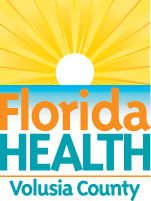It's a New Day in Public Health.
The Florida Department of Health works to protect, promote, and improve the health of all people in Florida through integrated state, county, and community efforts.
Saltwater Bacteria can be deadly
July 11, 2016
Volusia County, Fla. - Four people have died in Florida this year from the saltwater bacteria, Vibrio vulnificus. Residents in the following counties have deaths attributed to Vibrio vulnificus: Broward, Citrus, Palm Beach and Santa Rosa counties.
The Florida Department of Health in Volusia County urges Floridians and visitors to take precautions to avoid exposure to Vibrio vulnificus, a naturally occurring organism. Vibrio vulnificus can cause disease in those who eat contaminated seafood or expose an open wound to warm, brackish seawater. Ingestion of Vibrio vulnificus can cause vomiting, diarrhea and abdominal pain. Vibrio vulnificus also can cause a skin infection when open wounds are exposed. These infections may lead to skin breakdown and ulcers.
Vibrio, as it’s commonly referred to, lives in in warm, coastal areas with brackish water such as the Halifax and Indian rivers, according to Dr. Paul Rehme, DOH-Volusia disease control director. It is found in higher concentrations in stagnant, inshore waters during warm, rainy months from April - November.
“People most at risk of contracting an infection are anglers and swimmers in brackish water,” Rehme added. “People with weakened immune systems or other chronic illnesses are most likely to develop severe infections or die from contracting Vibrio.”
Tips for preventing Vibrio vulnificus infections include:
Do not eat raw oysters or other raw shellfish.
Cook shellfish (oysters, clams, mussels) thoroughly.
For shellfish in the shell, either a) boil until the shells open and continue boiling for 5 more minutes, or b) steam until the shells open and then continue cooking for 9 more minutes. Do not eat those shellfish that do not open during cooking. Boil shucked oysters at least 3 minutes, or fry them in oil at least 10 minutes at 375°F.
Avoid cross-contamination of cooked seafood and other foods with raw seafood and juices from raw seafood.
Eat shellfish promptly after cooking and refrigerate leftovers.
Avoid exposure of open wounds or broken skin to warm salt or brackish water, or to raw shellfish harvested from such waters.
Wear protective clothing (e.g., gloves) when handling raw shellfish.
“It’s an old wives’ tale that we should rinse wound infections in salt water to clean them,” Rehme explained. “That’s the wrong thing to do especially during warm months of the year.”
People with chronic liver disease are at risk for Vibrio vulnificus infection when they eat raw shellfish, particularly oysters. People with these pre-existing medical conditions are 80 times more likely to develop Vibrio vulnificus blood infections than healthy people.
Additional information is online at the DOH website.
***
About the Florida Department of Health
The department works to protect, promote and improve the health of all people in Florida through integrated state, county and community efforts.
Follow us on Twitter at @HealthyFla and on Facebook. For more information about the Florida Department of Health please visit www.FloridaHealth.gov.




Connect with DOH